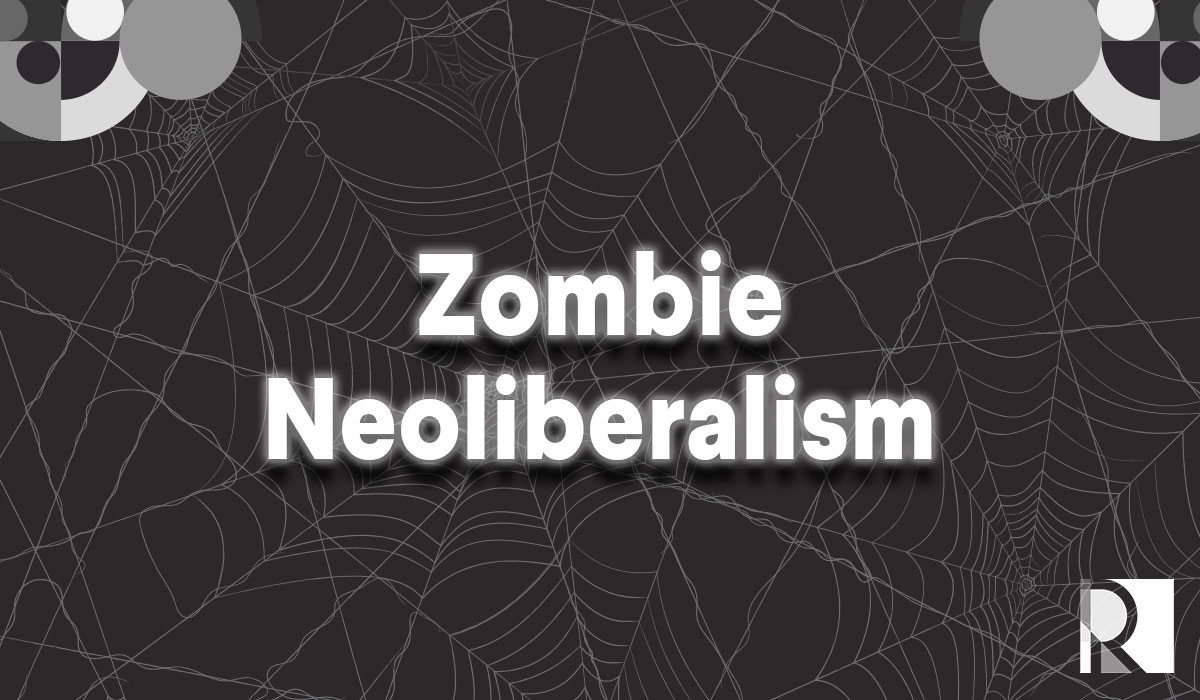Zombie Neoliberalism Strikes Again
October 22, 2021
The antidote: Show that government can work.
The Roosevelt Rundown features our top stories of the week.
rose
Fending off Zombie Neoliberalism
This month’s negotiations around the Build Back Better agenda are being haunted by an unwelcome horror: zombie neoliberalism.
That decades-old, failed economic paradigm—which undermined government’s role and promoted unfettered private markets—has crept into the latest congressional proposals, as Roosevelt President and CEO Felicia Wong writes.
Means testing, increasing reliance on markets, and the elimination of programs that explicitly address legacies of race and gender discrimination are throwbacks to that failed thinking—“and will continue to be a danger until public provisioning becomes the norm in our politics and policymaking,” Wong argues.
To beat back zombie neoliberalism, policymakers must deploy public power affirmatively, directly, and ambitiously.
“We can show that government can work and make a difference, but that first means government has to work and make a difference,” Wong writes.
Another Piece of the Labor Market Puzzle
Record numbers of people are quitting their jobs, and record numbers of jobs remain to be filled. We are seeing severe labor shortages, but also the largest hiring rates of the 21st century.
There’s no one answer to these unusual trends. But “one underreported fact that bridges these phenomena,” writes Roosevelt’s Mike Konzcal, is “a significant recovery in the amount of people moving from one employer to another without ever being recorded as unemployed in-between.”
Konczal notes that employer-to-employer transitions have returned to pre-pandemic levels, and are actually higher than when unemployment was previously at its current level.
“This surge in employed people finding jobs is notable throughout 2021 and is an important additional answer to these open labor market questions. [Employer-to-employer] transitions . . . are important to both this recovery and the overall health of the labor market.”
Up Next at the Four Freedoms Awards
“We’re just at the beginning of what’s necessary. The New Deal didn’t get done in one year. So we’re gonna need to win big policy change; organize, implement, and defend it and come back for more,” said Deepak Bhargava at this week’s Four Freedoms Awards ceremony, the second of three this month.
Bhargava, this year’s Freedom from Want laureate, was speaking with United We Dream’s Cristina Jiménez, who also interviewed worker rights activists Sixta Leon Barrita, Rubiela Correa, Sonia Pérez Garcia, and Maria Isabel Sierra—the Freedom from Fear laureates. You can watch a recording of this inspiring evening on our Facebook page.
And this Wednesday at 7pm, tune in for the final ceremony, when we’ll be presenting the Freedom Medal to late civil rights activist and hero Fred T. Korematsu, whose challenge of the incarceration of Japanese Americans during World War II went all the way to the Supreme Court. The medal will be accepted on his behalf by his daughter, Dr. Karen Korematsu, who will speak with Roosevelt Institute Board Chair Anna Eleanor Roosevelt. In honoring Mr. Korematsu, we publicly acknowledge the harm FDR’s policy decision caused the Japanese American community, and by extension all Americans.
What We’re Reading
Joe Manchin Doesn’t Like What Joe Biden Is Doing [feat. Roosevelt’s Mike Konczal] – New York Times
America’s Workers Are Fighting Back: Can They Win? [feat. Roosevelt’s Aaron Sojourner] – The New Yorker
Harry and Meghan’s “Ethical” Investments, Explained [by Roosevelt Fellow Lenore Palladino] – NBC News
